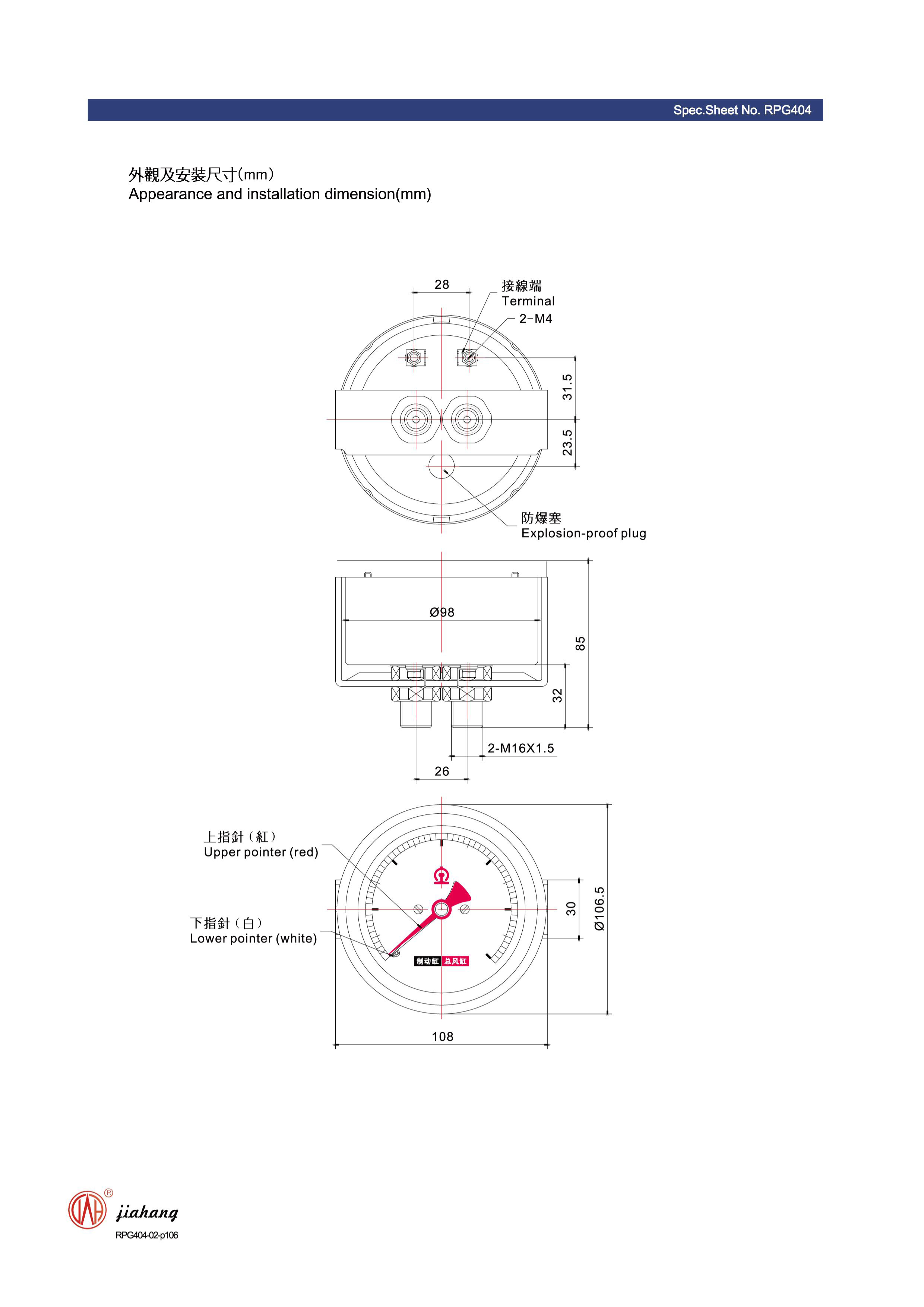
10 月 . 06, 2024 18:33 Back to list
differential pressure gauge diaphragm type products
Understanding Differential Pressure Gauge Diaphragm Type Products
Differential pressure gauges are essential instruments used in various industrial applications to measure the pressure difference between two points. Among the various types of differential pressure gauges available in the market, the diaphragm type stands out due to its robust construction, high sensitivity, and versatility. In this article, we will delve into the working principle, applications, advantages, and considerations for selecting diaphragm type differential pressure gauges.
Working Principle
The diaphragm type differential pressure gauge utilizes a flexible diaphragm to sense pressure changes. The device comprises two chambers separated by a diaphragm. As pressure from the two sides acts on the diaphragm, it deflects in response to the pressure difference. This deflection is transmitted to a mechanical linkage that translates it into a readable scale on the gauge.
The diaphragm is typically made from materials such as stainless steel, rubber, or other elastomers, chosen based on the application requirements. The design allows the gauge to measure very small pressure differences accurately, making it suitable for various applications, from HVAC systems to complex industrial processes.
Applications
Diaphragm type differential pressure gauges are used across a multitude of industries due to their accuracy and reliability
. Some common applications include1. HVAC Systems Monitoring airflow and pressure drops across filters and ducts to ensure optimal performance and system efficiency. 2. Process Control Measuring pressure differentials in chemical processes to maintain desired reactions and product quality. 3. Oil and Gas Monitoring pipeline pressures and ensuring safety by detecting leaks or blockages. 4. Water Treatment Measuring pressure differentials across filters and membranes to monitor system performance and prevent failures. 5. Pharmaceuticals Ensuring sterile processes by monitoring pressure differentials in cleanroom applications.
differential pressure gauge diaphragm type products

Advantages
1. Accuracy and Sensitivity Diaphragm type gauges are known for their high accuracy and the ability to detect small pressure changes, making them crucial for sensitive applications. 2. Robustness These gauges are designed to withstand harsh industrial environments, including exposure to corrosive substances and extreme temperatures. 3. Minimal Maintenance The sealed construction prevents dust and moisture from affecting the internal mechanisms, leading to lower maintenance requirements and longer operational life. 4. Versatile Configuration Diaphragm type gauges can be configured to measure a wide range of pressures, making them suitable for diverse applications.
Considerations for Selection
When selecting a diaphragm type differential pressure gauge, several factors should be taken into consideration
1. Pressure Range Ensure that the gauge is suitable for the specific pressure ranges of the application. This will determine the gauge's accuracy and longevity. 2. Material Compatibility Consider the materials of construction based on the media being measured. Stainless steel is commonly used for corrosive environments, while polymers may be suitable for less aggressive applications. 3. Temperature Rating Ensure that the gauge can withstand the temperature extremes of the operating environment to prevent damage or inaccurate readings. 4. Connection Types Depending on the installation, check for suitable connection types and sizes to ensure compatibility with existing systems. 5. Calibration and Compliance Determine if the gauge meets industry standards and if it requires certification for specific applications, such as food and pharmaceutical industries.
Conclusion
In conclusion, diaphragm type differential pressure gauges are indispensable tools in industries that rely on precise pressure measurements. Their unique construction, high sensitivity, and durability make them suitable for a wide range of applications. By understanding their working principle, applications, advantages, and the crucial factors to consider during selection, professionals can ensure that they choose the right gauge to meet their specific needs. As technology continues to advance, diaphragm type gauges will only become more integral to monitoring and controlling processes across various sectors.
-
Digital Pressure Gauge RS Components for Semiconductor & Chip Industries
NewsMay.23,2025
-
Industrial Differential Pressure Gauges Global Supplier & Pricelist
NewsMay.23,2025
-
Bourdon-Type Differential Pressure Gauges High Accuracy & Affordable Pricing
NewsMay.22,2025
-
Vacuum Differential Pressure Gauges High-Precision Solutions & Quotes
NewsMay.22,2025
-
Durable Diaphragm Pressure Elements High Accuracy & Custom Quotes
NewsMay.22,2025
-
AG Precision Pressure Gauges High Accuracy & Global Exporters
NewsMay.21,2025
